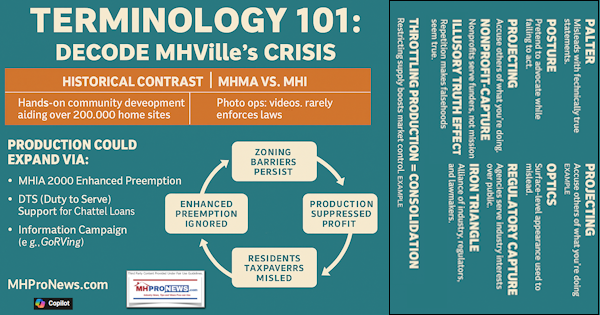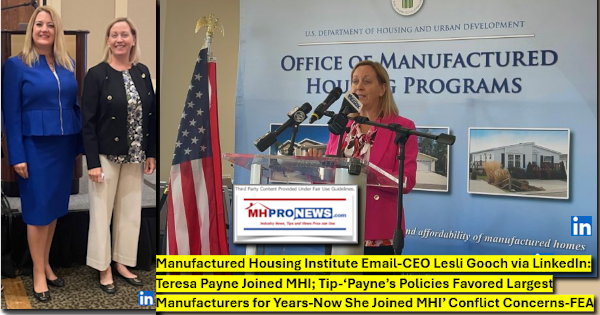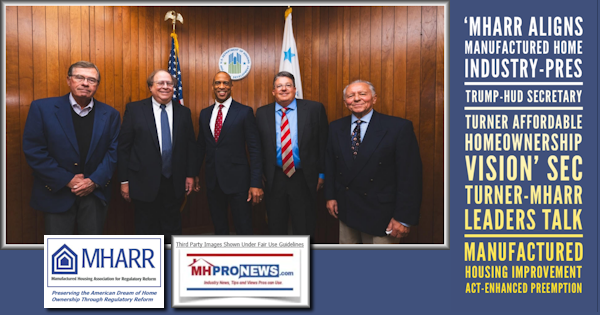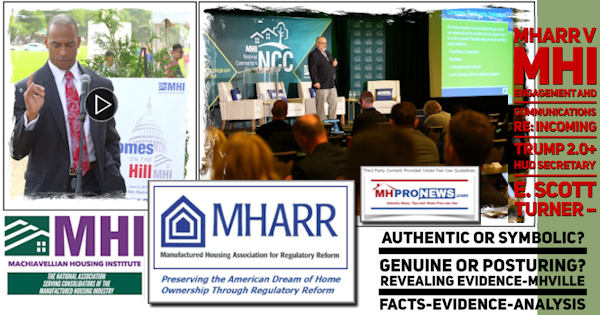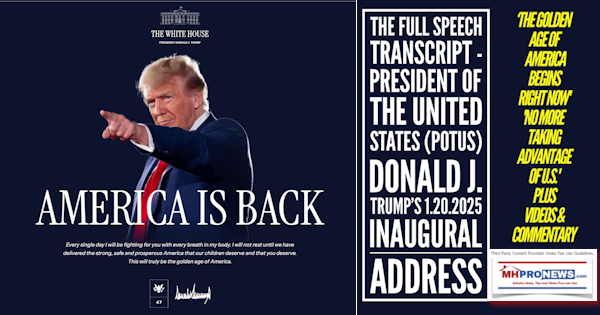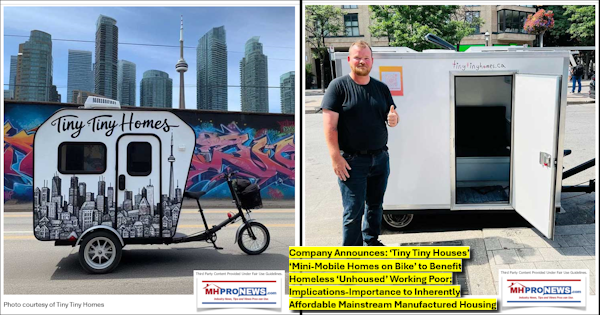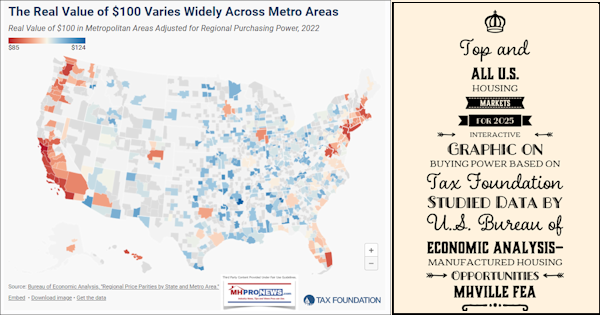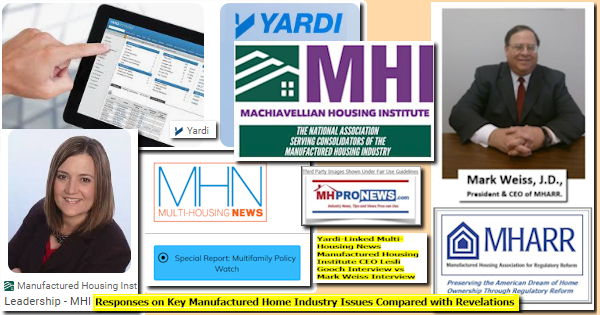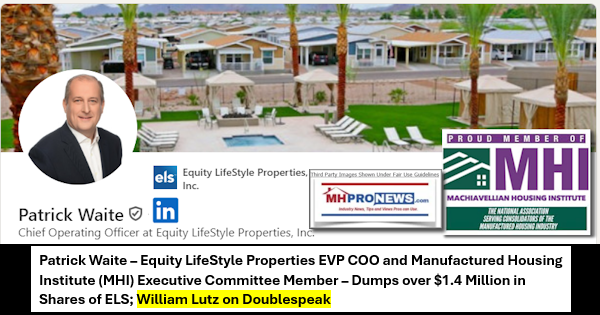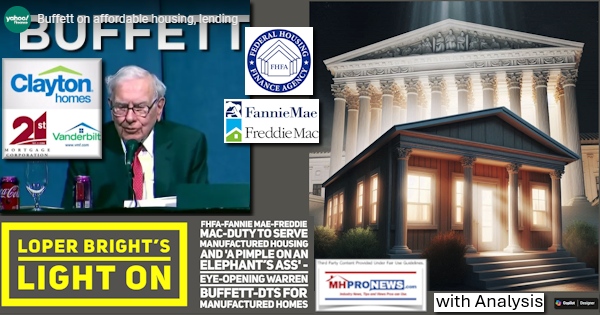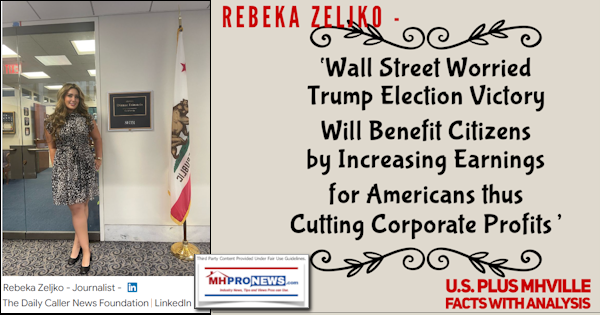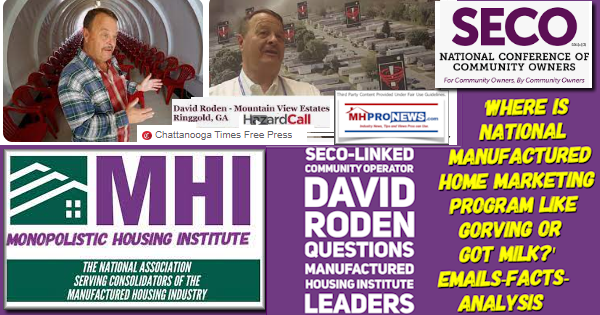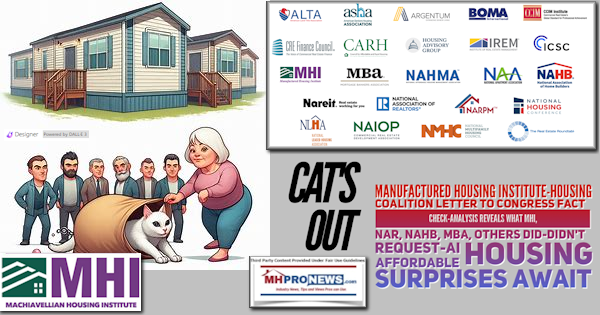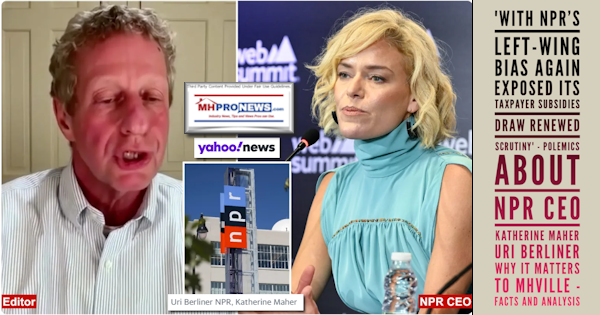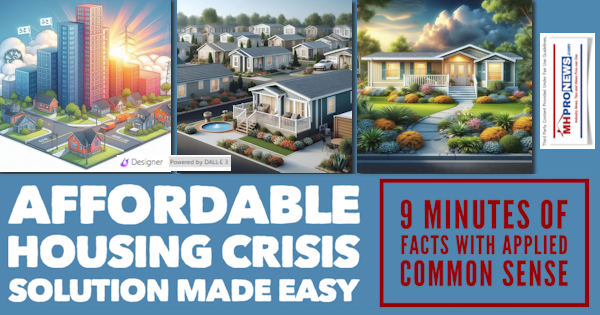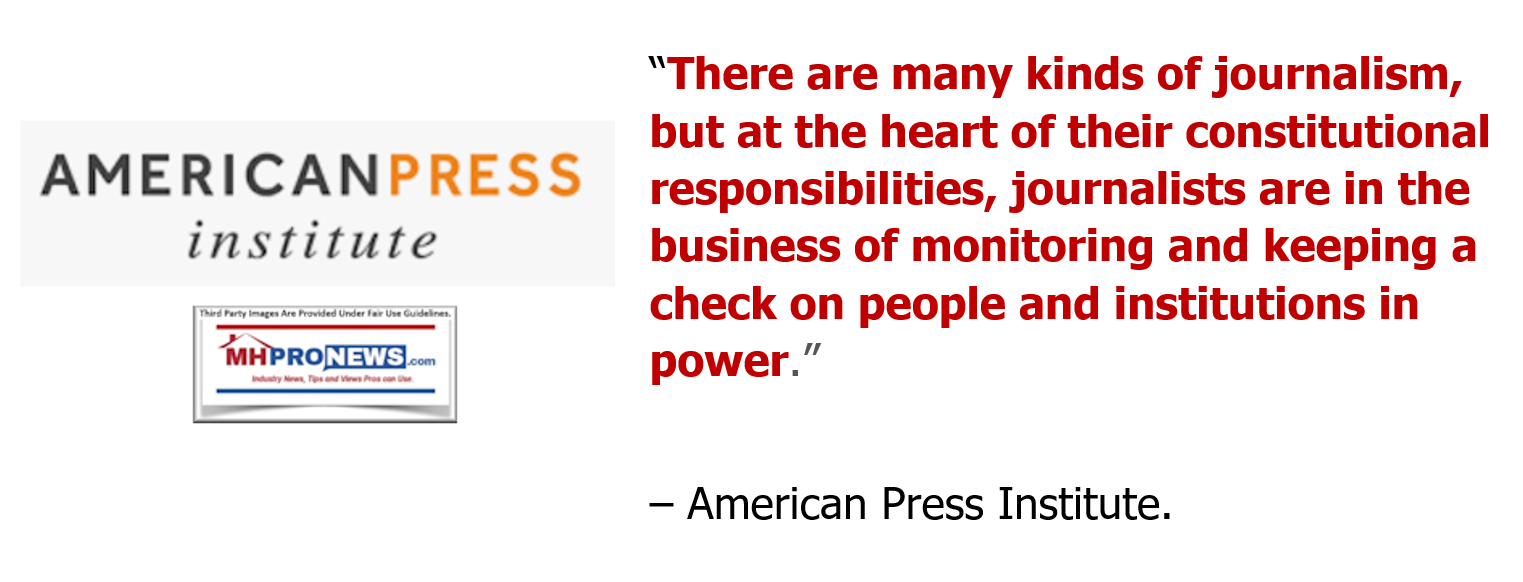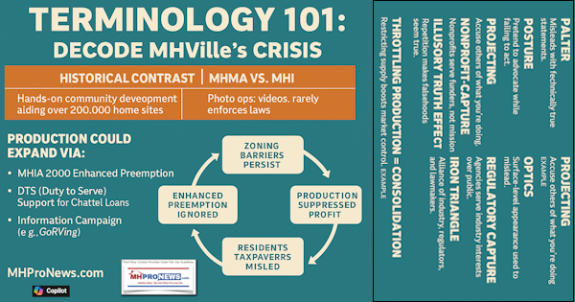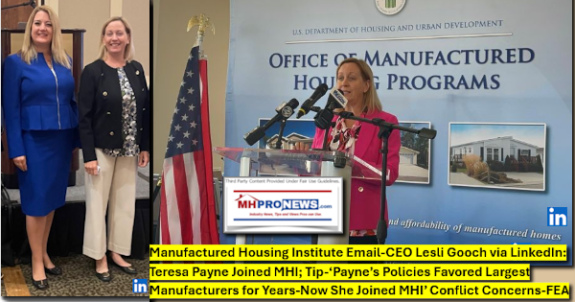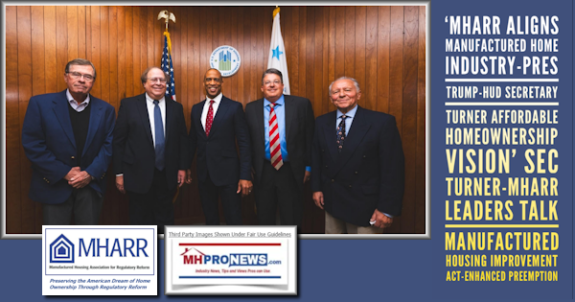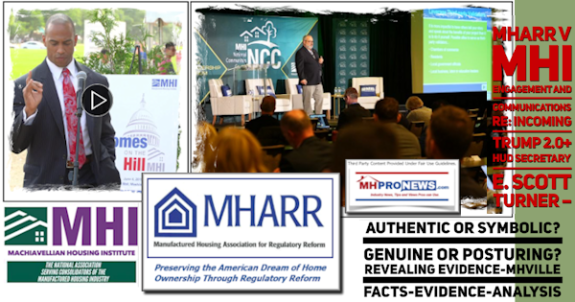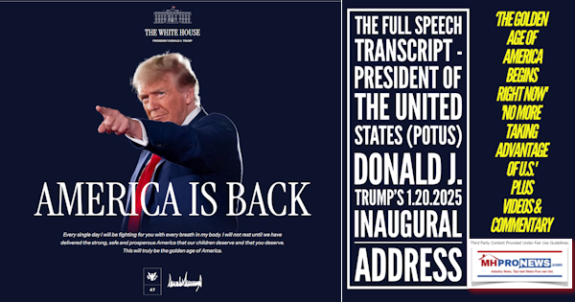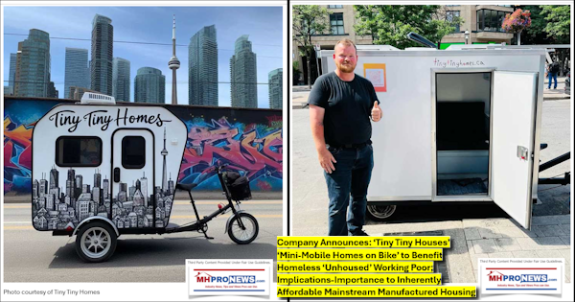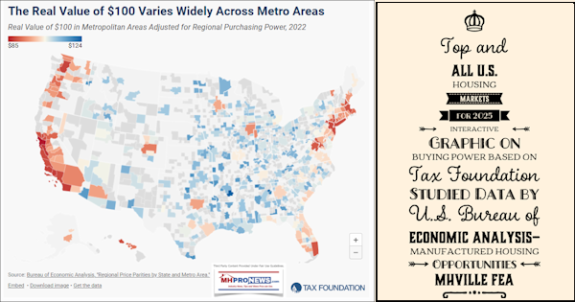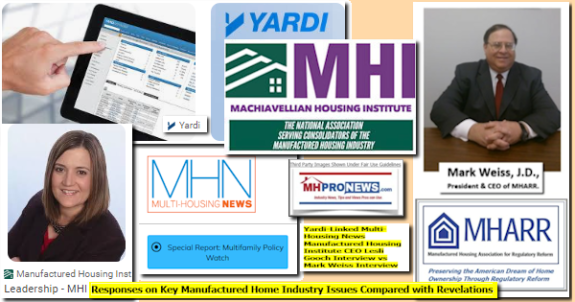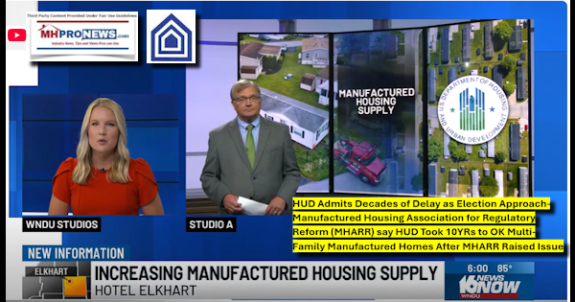According to the Yardi website, Multi Housing News (MHN) is part of “Yardi Companies & Affiliates.” According to prior Manufactured Housing Institute (MHI) membership information, Yardi is a member of MHI. Yardi has co-sponsored MHI linked events. While all of that can be kosher, there was an apparent failure to visibly disclose those ties on the page the article published by Multi-Housing News (MHN) writer Laura Calugar posted in her “interview” of MHI CEO Lesli McCollum Gooch, Ph.D., entitled “MHN Asks: Why Isn’t There More Manufactured Housing?”
Their About Us page stated in part: “MHN delivers timely, in-depth and authoritative analysis of industry news, as well as access to thought leaders’ best practice strategies and proven business solutions.” Words have meaning. As Part I and II of this article will explore, “timely, in-depth and authoritative analysis of industry news” does not properly reflect the character or quality of the content as published by MHN and attributed to MHI CEO Gooch.
As was previously reported, MHProNews made multiple outreaches to MHN to see if they would correct and clarify some apparent problems with their “interview.” In response to those outreaches was the following message.
| from: | Therese Fitzgerald-Biskup@ mhn.com | ||
| to: | L. A. “Tony” Kovach @ MHProNews, Suzann Silverman @ yardi.com, Jessica Fiur @ yardi.com, Paul Rosta @ yardi.com |
||
| date: | Sep 11, 2024, 4:06 PM | ||
| subject: | RE: Media outreach: Suzann D. Silverman, Jessica Fiur, Paul Rosta, Therese Fitzgerald re: Fwd: Laura, media outreach about your interview with Lesli Gooch published today. |
Wow! Did you check out his site? Seems like a lot of what they do. They review other people’s content to see if it agrees/disagrees with their perspective.
Maybe Laura can get some insights from her source. …”
In short, MHN’s Executive Editor Therese Fitzgerald-Biskup, who per their information “has nearly 20 years experience writing and editing commercial real estate content” professionally and politely indicated that MHN’s Laura Calugar should follow up with Lesli Gooch at MHI.
Having apparently checked out MHProNews, Fitzgerald-Biskup also clearly understood what was about to occur in the way of what is sometimes called a fisking.
With that backdrop, this is a storm-delayed planned follow up to our initial report on the MHN ‘interview’ of Gooch that is linked here.
Part I below provides the questions posed by Yardi-linked MHN to MHI CEO Gooch.
Part II shares our interview of Mark Weiss, J.D., President and CEO of the Manufactured Housing Association for Regulatory Reform (MHARR).
Part III will provide some additional information with added factual insights and commentary.
Part I – Quoting the MHN interview linked here.
 MHN Asks: Why Isn’t There More Manufactured Housing?
MHN Asks: Why Isn’t There More Manufactured Housing?
September 11, 2024
Manufactured Housing Institute CEO Leslie Gooch on barriers to new supply.
Manufactured housing has long been recognized as a vital source of affordable housing, though barriers to wider adoption remain.
“Millions of individuals and families have chosen to live in land-lease manufactured home communities, and demand is growing,” noted Lesli Gooch, CEO of the Manufactured Housing Institute.
The trade organization has been working alongside policymakers to advocate for increased support for this asset class, which serves housing needs in a wide range of communities–from rural to high-cost metropolitan areas.
Multi-Housing News interviewed Gooch to uncover the latest manufactured housing trends and issues.
What stands in the way of developing more MHCs?
Gooch: Like other forms of housing, one of the largest barriers to developing more manufactured housing communities is zoning. Across the country, there are countless examples of state and local zoning, planning and development restrictions that either severely limit or outright prohibit the placement of a manufactured home. …”
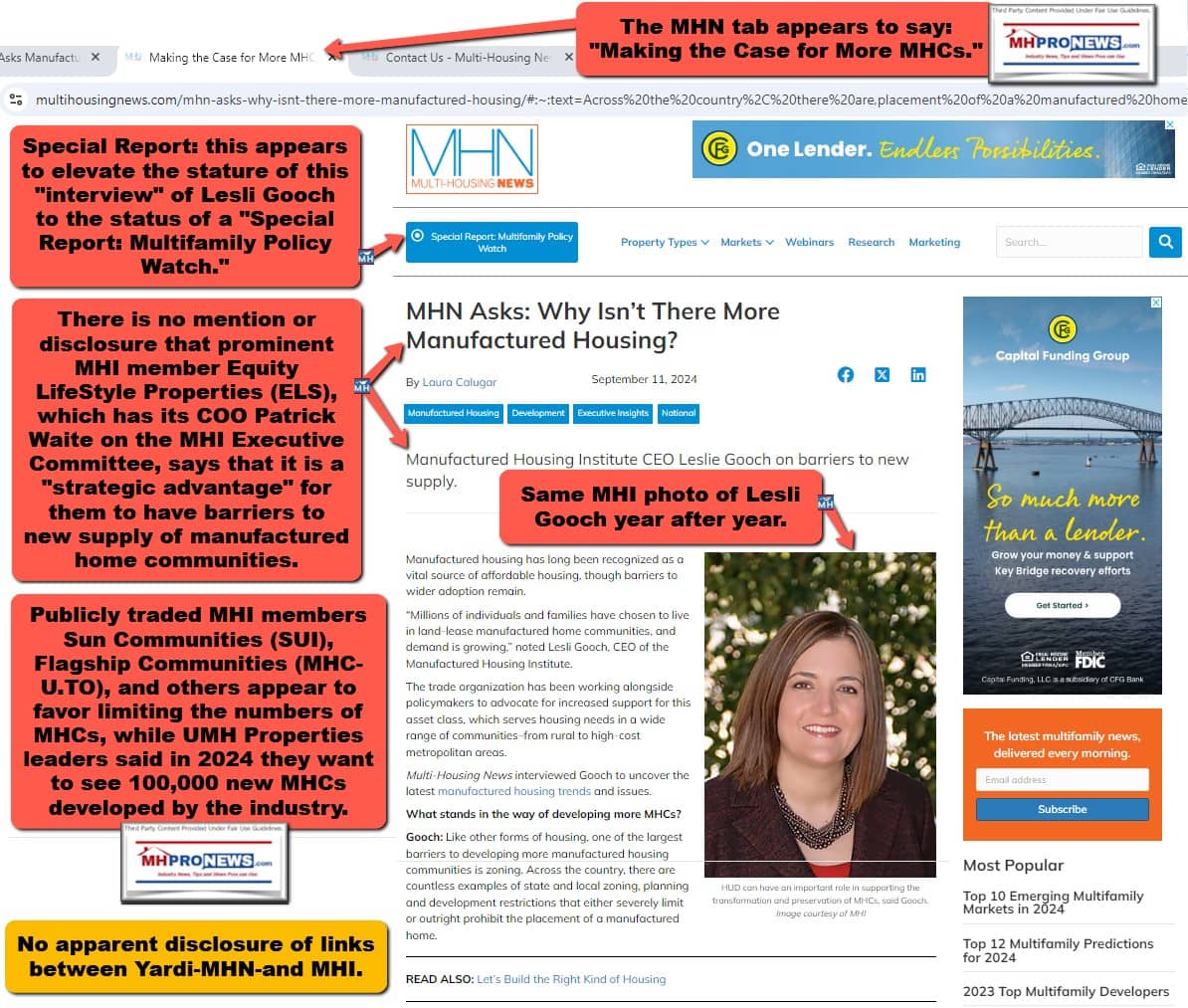
Continuing quoting from the MHN interview of Gooch by Calugar linked here.
MHI is working to expand policymaker awareness of manufactured housing and manufactured housing communities so they change land use policies to meet the affordable housing needs in their jurisdictions. There is no question that increased access to manufactured housing will result in more communities being developed as the demand exists for brand new homes that have today’s design features, modern amenities and energy efficiencies at attainable price points located within amenity-rich communities.
It is not a lack of demand for manufactured housing that is the major hindrance, but rather a need to expand access. About 30 percent of the manufactured homes produced today are placed in a manufactured housing community. The demand for living in manufactured housing communities is strong, which is why occupancy rates continue to be very high. Given the financial and lifestyle benefits of owning a manufactured home versus the limitations that come with other affordable housing options, millions of individuals, families and retirees have chosen to live in land-lease manufactured housing communities.
Why is there such a slow pace in zoning changes if affordable housing demand is so high?
Gooch: Zoning and land planning ordinances have a profound impact on housing patterns. Restrictive ordinances can take many forms: some direct like outright bans and zoning barriers, others more subtle like home age or lot size restrictions. Increased conversation about housing supply has raised awareness of these restrictions, leading to both local and national policymakers working toward changes.
MHI is partnering with HUD on research to assess the specific zoning barriers to manufactured housing. We plan to develop a manufactured housing regulatory index that identifies and evaluates barriers to the placement of manufactured housing. Challenges remain, but by showing policymakers the quality that today’s manufactured homes offer and with the continued engagement of policymakers at all levels of government to address housing supply and affordability challenges we think we are making progress. …”
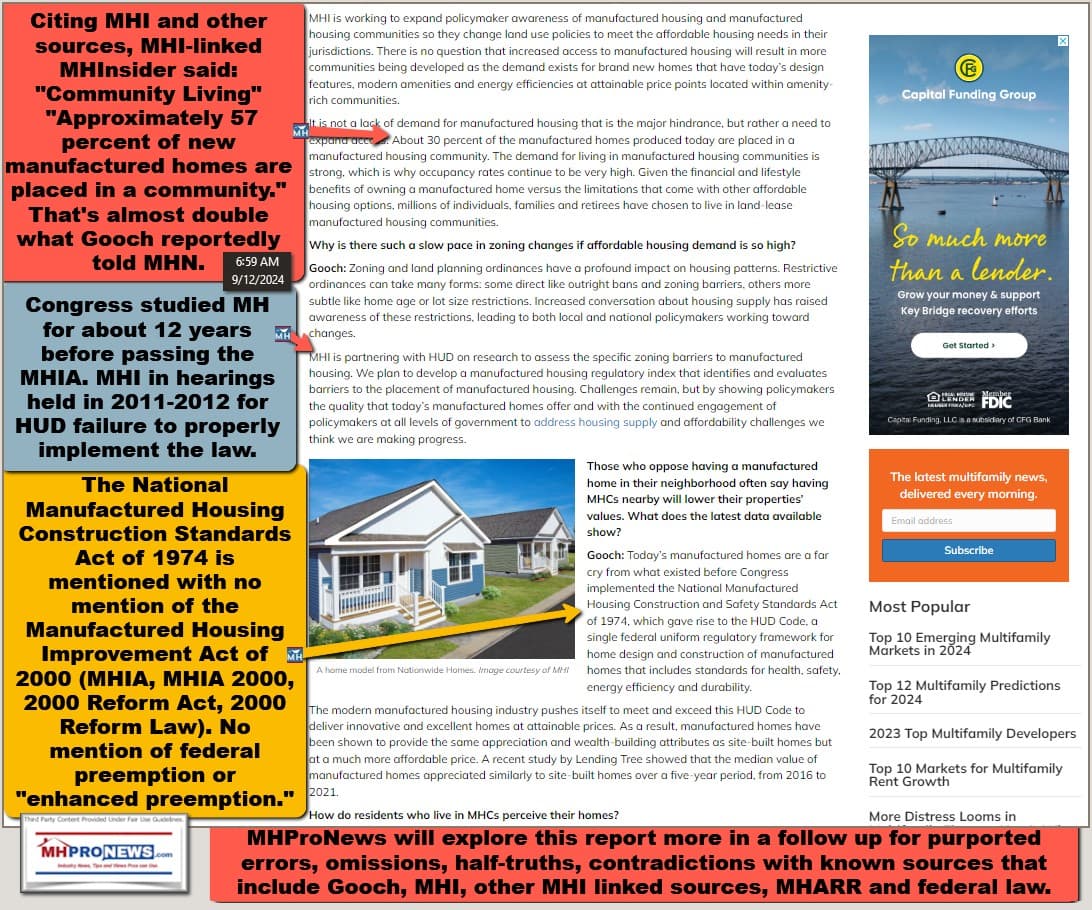
Screen capture of MHN Interview with Manufactured Housing Institute (MHI) CEO Lesli Gooch, Ph.D. published on 9.11 and as shown the morning of 9.12.2024. Note that depending on your device or browser, this image can be opened to a larger size. To do so, click the image and follow the prompts.
Those who oppose having a manufactured home in their neighborhood often say having MHCs nearby will lower their properties’ values. What does the latest data available show?
Gooch: Today’s manufactured homes are a far cry from what existed before Congress implemented the National Manufactured Housing Construction and Safety Standards Act of 1974, which gave rise to the HUD Code, a single federal uniform regulatory framework for home design and construction of manufactured homes that includes standards for health, safety, energy efficiency and durability.
The modern manufactured housing industry pushes itself to meet and exceed this HUD Code to deliver innovative and excellent homes at attainable prices. As a result, manufactured homes have been shown to provide the same appreciation and wealth-building attributes as site-built homes but at a much more affordable price. A recent study by Lending Tree showed that the median value of manufactured homes appreciated similarly to site-built homes over a five-year period, from 2016 to 2021.
How do residents who live in MHCs perceive their homes?
Gooch: The successful hybrid homeownership model of land-lease communities is evidenced in consumer research that shows that residents who live in these communities are highly satisfied with their housing choice.
U.S. Census data and independent research conducted by MHI shows that manufactured housing community residents report high levels of satisfaction and that they are likely to recommend it to others. Statistical evidence alongside tangible evidence of high-quality, well-maintained communities are important elements to helping the public and policymakers alike understand the manufactured housing communities of today.
In June, HUD launched a program designed to allow for the purchase, refinance or renovation of manufactured housing under a loan program sponsored by the FHA. What is your take on this program and its potential impact on the sector?
Gooch: MHI is encouraged that HUD is looking at how their existing programs can serve those seeking to live in manufactured housing. The FHA announcement is to transform a program originally designed for multifamily rental projects so that it can be used for the preservation of manufactured home communities. Currently, Fannie Mae and Freddie Mac safely and productively support manufactured housing community loans as part of their affordable housing mission. It’s great that FHA recognizes the role it can have here, as well.
MHI is disappointed that the initial revival of the program limits eligibility for these loans to resident-owned or other nonprofit-owned manufactured housing communities. We believe the narrow eligibility will significantly hamper the impact the program could otherwise have in preserving manufactured housing communities across the country.
There are many older manufactured housing communities that lack the financial resources to preserve the communities, such as by upgrading critical infrastructure. As a result, this naturally occurring affordable housing is in danger of being lost, either through community closure or increased cost for residents. HUD can have a role in supporting the transformation and preservation of these communities.

How difficult has it been for MHC developers and owners to obtain financial support for their projects in today’s economic environment?
Gooch: Financing for manufactured housing and manufactured housing communities is a rather nuanced environment. While there are various sources of financing, it is unique that the federal financing programs have historically offered limited support for manufactured housing. This is slowly changing with Fannie Mae and Freddie Mac having a statutory “duty to serve” manufactured housing and FHA also looking at ways their programs can support manufactured housing.
The lackluster GSE support, the impact of the current economic conditions and factors like insurance rates result in a financing sphere that is challenging manufactured housing community owners and developers. As such, it’s crucial that programs aimed at revitalizing or developing new affordable housing include manufactured housing as a homeownership type and allow all eligible community owners to obtain financing.
Are there any particular areas where demand for affordable housing, specifically manufactured housing, is higher than in other parts of the country?
Gooch: The housing supply shortage is being felt across the country and it has spurred innovation in our industry to meet the needs in various jurisdictions. Such innovation was on display at this year’s HuD Innovative Housing Showcase where our members displayed a single-section duplex and a multisection duplex for policymakers and the public alike to view and explore. By nature of their design, these duplexes can help address housing challenges in high density areas. Other manufactured housing styles like a standard single-section, multi-section, CrossMod homes, and HUD Code accessory dwelling units help tackle challenges in different areas to bring attainable homeownership to people across the country.
Tell us more about MHI’s latest actions aimed at altering the perception of manufactured housing among the public and policymakers.
Gooch: Focusing on communicating the positive story of manufactured housing as quality housing that is available at attainable price points is important to MHI. MHI engages with federal policymakers about manufactured housing as a critical element of policy strategies to address the nation’s housing supply shortage. We also partner around the country to support our state associations and members as they engage with state and local policymakers. We are constantly updating our research and information around manufactured housing to dispel misconceptions and misperceptions about our homes.
There is no question that seeing is believing when it comes to our homes, and we have found that one of the greatest tools for sparking policymaker enthusiasm about manufactured housing is through tours of the homes themselves. MHI and its members have worked to bring policymakers to our homes to see the quality and beauty of our homes.
In addition, MHI is working to participate with key thought leadership housing and economic development groups and convenings to ensure when conversations are taking place about addressing the nation’s housing supply shortage that manufactured housing is a part of that discussion. Through constant and diligent engagement, we are striving to continually elevate and grow awareness and understanding of the vital role of manufactured housing. ##
More on the Masthead’s take of MHI’s responses in Part III. But next up, are the replies provided by Mark Weiss, J.D., President and CEO of MHARR to substantially similar questions posed to Gooch by MHN, tweaked to better reflect MHARR’s focus and thus their thinking.
Part II – Interview with MHARR’s Mark Weiss on Topics Raised by MHN with MHI CEO Lesli Gooch
MHProNews: What stands in the way of developing more manufactured housing communities (MHCs) around the United States?
MARK WEISS: As MHARR has already analyzed in detail – and published in a previous White Paper – there are two principal bottlenecks that continue to restrict the evolution and growth of the HUD Code manufactured housing industry (into annual production levels in the hundreds-of-thousands of homes), both in terms of the development of new MHCs and the placement of individual manufactured homes. Those bottlenecks – both of which reside within the industry’s post-production sector — are discriminatory/exclusionary zoning laws and constraints on the availability of market-competitive manufactured housing personal property (chattel) loans.
As far as solutions are concerned, Congress has provided the industry and its consumers with two outstanding laws – the Manufactured Housing Improvement Act of 2000 (2000 Reform Law) and the Duty to Serve (DTS) provision of the Housing and Economic Recovery Act of 2008 (HERA) – to address and resolve both such matters.
Regarding exclusionary zoning, the 2000 Reform Law specifically enhanced the federal preemption mandate enacted by Congress in the National Manufactured Housing Construction and Safety Standards Act of 1974 to “broadly and liberally” include all state or local “requirements” of any kind that impair the federal superintendence of the manufactured housing industry. And, lest there be any doubt about the meaning of this amendment, subsequent communications from the congressional sponsors of this legislation to HUD make it clear that this change was intended to include within the scope of federal preemption under the Act, zoning laws which exclude manufactured housing.
Similarly, the Duty to Serve mandate directs Fannie Mae and Freddie Mac to provide federal securitization and secondary market support for all types of manufactured home consumer loans, including the nearly 80% of the market represented by personal property loans. Significantly, there is an important interface and connection between the DTS mandate and the discriminatory zoning exclusion that the industry and its consumers face. Specifically, the full, robust and market-significant implementation of DTS would result in many more sales of new manufactured homes. Larger numbers of HUD Code homes entering the market, in turn, would create additional demand for new and expanded communities within which to place such homes. Consequently, as a simple matter of supply and demand, the full implementation of DTS would spur the growth of new, expanded and upgraded MHCs.
Neither of these beneficial laws, however, have been implemented by their relevant government agencies (i.e., HUD and the Federal Housing Finance Agency — FHFA) to benefit American consumers of affordable housing. Instead, in each case, for two decades (or more), these crucial statutory mandates have been ignored and subverted by HUD and FHFA, to the extreme detriment of American consumers of affordable housing, with little or no effective push-back from the industry’s post-production national representation. The industry’s post-production sector and its national representation, accordingly, have failed – and continue to fail – to aggressively pursue the full, robust and proper implementation of both of these crucial mandates.
Instead, that representation is constantly approaching Congress, seeking – unsuccessfully – new or modified laws that are not needed to resolve these issues and, in fact, are little more than window-dressing because, as noted above, these matters are already addressed by and in existing law. The roadblock facing the industry is not a lack of laws, but rather, a lack of implementation of those existing laws that will not be resolved by adding yet more laws that will similarly be ignored by relevant government agencies. What is needed, is concerted pressure on the agencies involved to fully implement the laws that exist, not more meaningless declarations.
That does not mean, however, that there is no role for Congress or no need to engage with Congress. First, the industry must press for absolute parity for manufactured housing in any and all laws and programs that pertain to housing and consumer home financing. Second, the industry should be seeking hard-hitting and aggressive congressional oversight of HUD, FHFA, Fannie Mae and Freddie Mac for their continuing failure to fully and properly implement all aspects of the 2000 Reform Law and the DTS mandate.
Thus, rather than trying to reinvent the wheel by seeking new and additional laws, the industry should prioritize the full implementation and enforcement of the good laws that are already on the books.
MHProNews: Why is there such a slow pace in achieving zoning changes if affordable housing demand is so great?
WEISS: The slow pace of change is a function of two principal causes. First, zoning policy in any given community is driven by vested interests, not by those seeking access to that community via affordable housing. Multiple studies have shown that over time, zoning policy has been abused to function as a means of exclusion, rather than inclusion, by existing homeowners and related interests.
Second, and more significant in the specific case of comprehensively federally-regulated manufactured housing, is the failure of HUD to enforce the enhanced federal preemption of the 2000 Reform Law to prevent communities from excluding mainstream HUD Code homes, and the parallel failure of the industry’s national post-production representation to effectively demand the enforcement of that provision. Instead of joining with MHARR in demanding that HUD fully implement enhanced federal preemption to prevent the exclusion of mainstream manufactured homes that HUD itself comprehensively regulates, the industry’s post-production national representation seems to devote more of its time, effort and resources to developing and promoting more costly hybrid types of so-called “off-site-built” housing in an apparent effort to sidestep – rather than eliminate — exclusionary zoning targeting HUD Code homes.
While MHARR would rather “fight than switch,” in regard to such blatant and baseless discrimination, others appear all too willing to switch to higher-cost hybrid types of homes, rather than fight for the mainstream HUD Code industry and the consumers who rely upon mainstream, affordable manufactured homes.
MHProNews: Those who oppose having a manufactured home in their neighborhood often claim that having MHCs close-by will lower their property values. Is such a claim valid?
WEISS: Absolutely not.
Just as background, the industry has already dealt with and addressed most of the early reasons (e.g., aesthetics, appearance, quality, durability) cited for discriminatory attitudes and local zoning opposition to manufactured housing. Such early objections, based upon the perception of manufactured homes as “trailers,” were largely resolved as a result of – and in the wake of – the adoption of the original federal manufactured housing law in 1974. These improvements corresponded with sustained production levels of 100,000 homes per year – or more – through 2000. Then, the enactment of the 2000 Reform Law marked the completion of the crucial transition from the ”trailers” of the past to today’s modern, affordable, energy-efficient manufactured homes.
Yet, some negative perceptions persist, despite not only the improvements cited above, but also repeated studies by well-respected organizations, including the Urban Institute, which have concluded that mainstream manufactured homes, while maintaining their inherent, non-subsidized affordability for Americans at every rung of the economic ladder, can and do appreciate over time.
In part, these continued negative perceptions have resulted from the small – and declining number – of communities with older pre-HUD Code models that have been allowed to deteriorate along with the properties themselves. As time progresses, more of today’s modern, attractive manufactured homes are being incorporated within MHCs by both individual homeowners and the MHCs themselves. At the same time, more modern management practices have resulted in more attractive, upgraded communities. This, combined with the amenities offered by today’s modern manufactured housing, have helped to overcome much of the outdated negative perception of MHCs, while offering moderate and lower-income families an attractive, cost-effective homeownership option.
The open and obvious improvements that have been made in the quality and aesthetics of today’s modern manufactured homes, however, are, in too many cases, irrelevant to local zoning officials, who simply do not want affordable manufactured homes and lower/moderate-income people in their communities. For many if not most of these officials, discrimination against manufactured homes and manufactured homeowners is, in reality, grounded in a discriminatory bias against the HUD Code (and homes built to the HUD Code) in relation to other building codes and the homes built to those codes (e.g., site-built homes, apartment buildings, other “factory-built” homes, etc.).
Such bias (disguised or otherwise) should not be occurring and should not be tolerated. Quite simply, the enhanced federal preemption of the 2000 Reform Law gives HUD all the power and authority that it needs to ensure that the manufactured homes it regulates are available to all Americans in all communities. The fact that HUD, for over 20 years, has refused to use this authority – in the face of an admitted affordable housing crisis – represents a crucial failure on its part and on the part of an industry national pos-production representation which has not forced the issue.
MHProNews: How do MHC residents perceive their homes?
WEISS: While subjective opinions are difficult to gauge and can vary, multiple studies have shown that manufactured homeowners, as a whole, view their homes positively and as an essential avenue to homeownership at an affordable price. This is consistent with studies, including a study by HUD itself, showing that mainstream HUD Code manufactured homes are more affordable not only than purchased site-built homes, but also the cost of renting other types of residences.
MHProNews: In June, HUD established a program to allow for the purchase, refinance, or renovation of manufactured housing under a loan program sponsored by the Federal Housing Administration (FHA). What is your take on the program and its potential impact on the manufactured housing sector?
WEISS: With the billions of tax dollars that HUD has shoveled out the door for so-called “housing” programs over the past few years, this is little more than a “throw-away” to mollify the industry and consumers. But it is little more than a token gesture when the industry and consumers need new and expanded communities, and the zoning and consumer financing needed to spur and maintain such growth.
As to individual homebuyers, MHARR took a leading role in encouraging FHA to modernize and upgrade its Title I manufactured housing loan program. That program, which had been a significant source of market-competitive consumer manufactured home lending in the past, had fallen to negligible levels of activity of the past decade, as the manufactured housing consumer lending market has simultaneously become unduly and unhealthfully concentrated in just a few hands, to the ultimate detriment of both the industry and consumers. MHARR, accordingly, pressed FHA to substantially revise and reform its “10-10” rule which, over that same period, had effectively excluded new and other lenders from the FHA Title I market. That pressure has now resulted in significant changes by FHA to relax the “10-10” rule and create the necessary conditions to attract new and additional lenders to the Title I program. If taken-up by industry lenders, the modernization and liberalization of the Title I program should increase the number of participating lenders and increase competition, ultimately benefitting manufactured homebuyers.
MHProNews: How difficult has it been for MHC developers and owners to obtain financial support for their projects in today’s economic environment?
WEISS: The question originally asked by MHN of MHI’s CEO Lesli Gooch, in and of itself, misses the point. The main driver underlying the slow or non-existent pace of development of new MHCs (and expansion of existing MHCs), has been – and continues to be – discriminatory zoning and land use opposition. While both Fannie Mae and Freddie Mac have helped to provide financing support for manufactured home communities as an aspect of DTS, the far more significant impediment to the development of new, expanded and upgraded MHCs, has been local opposition through zoning and placement restrictions. This only underscores the need for HUD to assert the enhanced federal preemption of the 2000 Reform Law to ensure that today’s modern and affordable HUD Code homes are not excluded from entire communities. While zoning “research” and databases are all well and good, local land use regulators must be told unequivocally that federal law supports the availability of affordable, mainstream manufactured housing for all Americans, and that land use prohibitions cannot be abused as a subterfuge for excluding affordable housing and homeownership.
MHProNews: Are there particular areas where the demand for affordable housing, particularly manufactured housing, is higher than in other parts of the U.S.?
WEISS: This question only serves to highlight a key aspect of the land use exclusions that the industry and its consumers face.
The short answer is “yes” – of course there are such areas. They are largely in inner cities and close-in suburban areas, where the need for affordable housing is most acute and where, not coincidentally, affordable, mainstream manufactured homes are most often excluded by zoning and/or placement restrictions. The industry’s answer, in such cases, should not be to change the nature of the industry’s product and, thereby, render it less affordable (if not totally inaccessible) to lower and moderate-income homebuyers but, rather, aggressively press for changes to such zoning and placement exclusions. This would necessarily have to include, as explained earlier, demanding that HUD enforce enhanced federal preemption in order to invalidate such laws.
MHProNews: What actions have or should be taken to alter the perception of manufactured housing among the public and policymakers?
WEISS: Lingering negative perceptions of modern HUD Code manufactured homes are not a function of the quality or attractiveness of today’s HUD Code homes but, rather, are a relic of a now bygone era. As such, they are not based on or grounded in current day reality, but are a discriminatory manifestation of outdated and unsupported biases. Like other types of irrational bias and discrimination, they serve no positive purpose, inflict undue harm on those most in need of community support and understanding, and should have no place in America’s hometowns. HUD should be at the forefront of eradicating such discrimination through its broad federal preemption mandate. ##
Part III – Additional Information with More MHProNews Analysis and Commentary
In no particular order of importance are the following facts and related reflections.
1) The analysis by MHProNews of MHARR’s Mark Weiss responses are found in the article linked here and below.
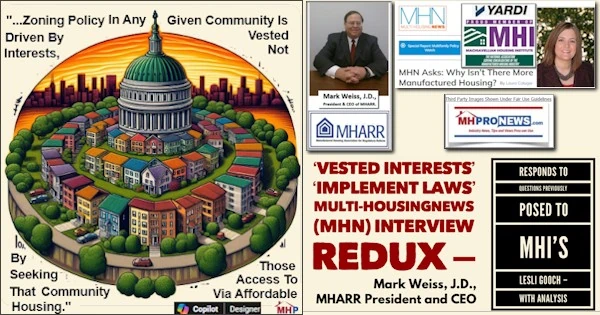
2) The following is adapted from items linked here. To illustrate some of the concerns with Gooch’s article, the following pieces of evidence are useful.
The Manufactured Housing Improvement Act of 2000 (MHIA) is piece of legislation that passed Congress by a widely bipartisan margin and was signed into law by then President William Jefferson “Bill” Clinton (D). It included a provision that is commonly referred to as “enhanced preemption.” Among those who have stressed to HUD and others in written communications the significance of federal preemption in overcoming zoning barriers is Lesli Gooch on behalf of MHI. But federal lawmakers in both the U.S. Senate and the House debated and discussed the importance of federal enhanced preemption as the report linked here details. The quotes illustration below are a partial list of such relevant comments. The below also mentions the Fannie Mae and Freddie Mac that Gooch mentioned in the interview with MHN and also in prior written comments. Note that the third source for federal preemption is Cavco, previously cited in the preface above in the illustration linked here. William “Bill” Boor was MHI’s vice chairman when those remarks were made by him to Congress last year but is now the Chairman of MHI. Among the takeaways is that it is virtually inconceivable that Gooch is not aware of these statements and facts. The last two items in this illustration/quote graphic are from the Equity LifeStyle Properties (ELS) investor relations (IR) pitch deck and from the Sun Communities (SUI) investor presentation. MHProNews has asked Gooch, several MHI leaders, and their outside attorney David Goch to respond to these items and related concerns. Sources deemed reliable confirm that Gooch and MHI leaders received those inquiries without responding.

3) For those who grasp the significance of the federal law, federal preemption was enhanced by the 2000 Reform Law precisely to overcome the zoning and placement barriers that Gooch claims in her interview with MHN that MHI is working to overcome. The illustration above about Accessory Dwelling Units (ADUs) shows the dramatic impact the preemption has had at the state level in CA and other jurisdictions.
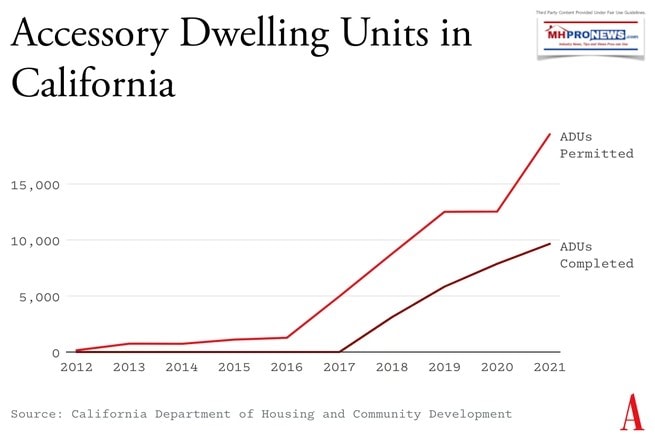
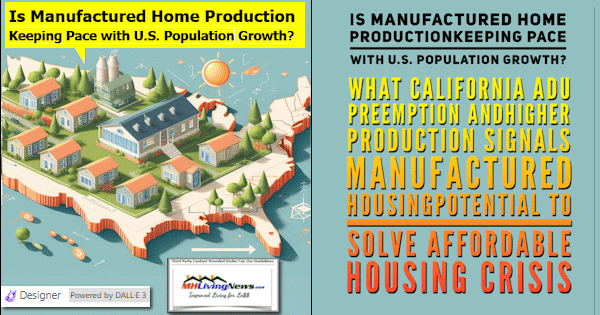
But in a dramatic contrast, this is what has occurred in the 21st century with manufactured housing.
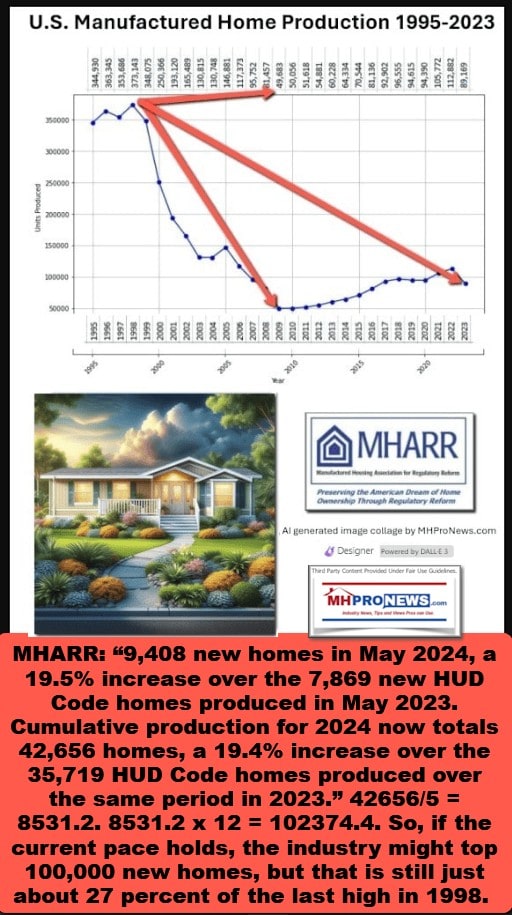
4) The Manufactured Housing Association for Regulatory Reform (MHARR), MHI, the Texas Manufactured Housing Association, and others worked in tandem for about 2 years to enact the MHIA or 2000 Reform Law. The full text of the letter stating the intent of Congress regarding federal preemption (shown again below) is found in a deep dive article linked here.
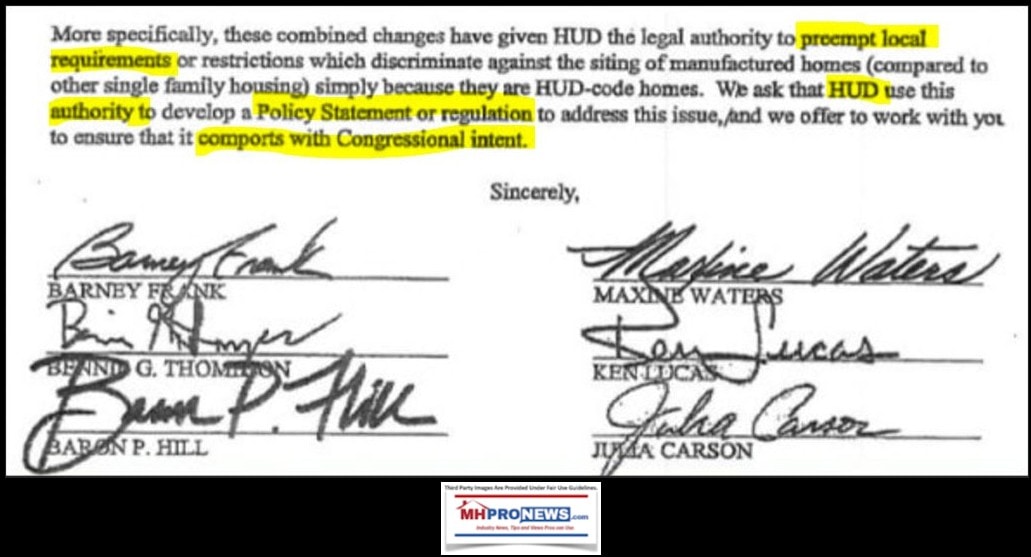
5) The screen capture of the page of the MHI letter from Gooch to then HUD Secretary Ben Carson that contained the pull quote shown in Part II #5 is shown below.
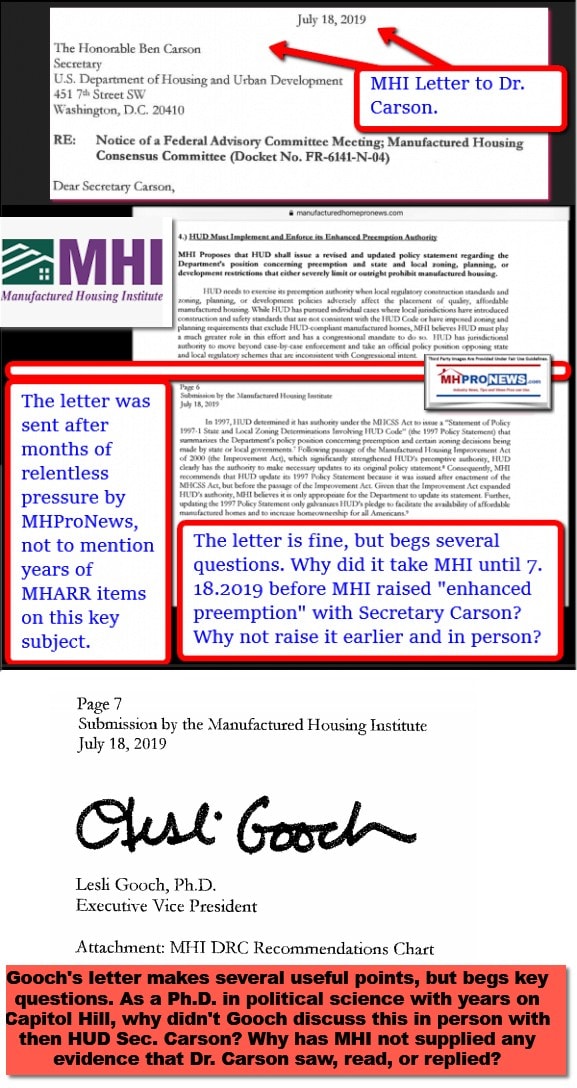
6) In the preface to the article linked here, MHProNews provided the above which is re-shared below for the convenience of our readers.
Roxana Popita @ yardi.com wrote:
Thank you, Tony. I see your point and the damage not-educated opinions can bring if taken further.
That same principle by Yardi’s Popita, buttressed by the SPJ standards for ethical conduct, ought to be applied to this posted interview.
7) MHI has members, past and present, that believe that the trade group has been thwarting efforts to get HUD to enforce enhanced preemption which is designed precisely to overcome the zoning barriers that Gooch claimed to MHN that they want to achieve with their supposed ‘engagement’ with public officials. Let’s stress that there is no question that MHI is engaged with those officials, there is evidence for that claim. But what is lacking is evidence that MHI is pressing for enhanced preemption enforcement. See the report linked below for an example of what left-leaning Bing’s AI powered Copilot said about MHI’s behavior on this topic.
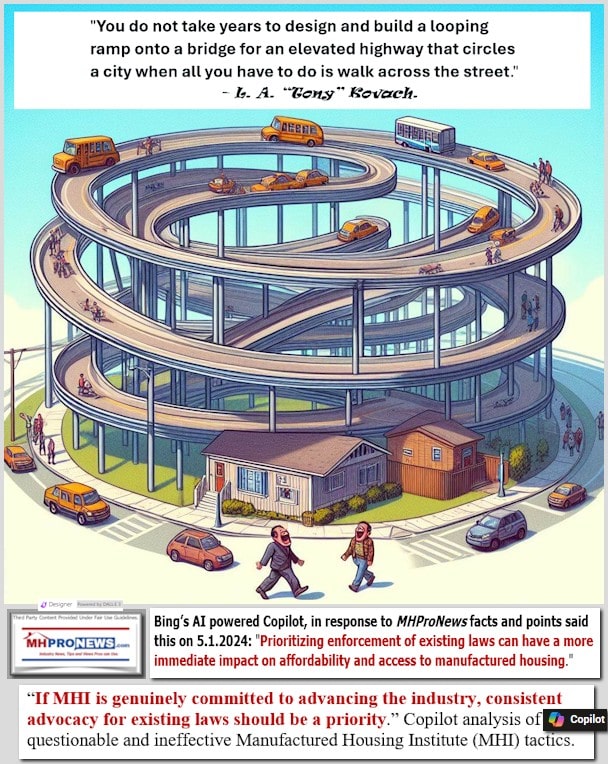
Copilot said: “If MHI is genuinely committed to advancing the industry, consistent advocacy for existing laws should be a priority.” Copilot also said: “Prioritizing enforcement of existing laws can have a more immediate impact on affordability and access to manufactured housing.” The context for those remarks by Copilot are found in the deeper dive report with analysis linked here.
8) But let’s illustrate how bizarre MHI’s behavior has been on these issues. On the one hand, they claimed to MHN that they want to overcome zoning barriers. But some of MHI’s own members have said that matters are getting worse, not better.
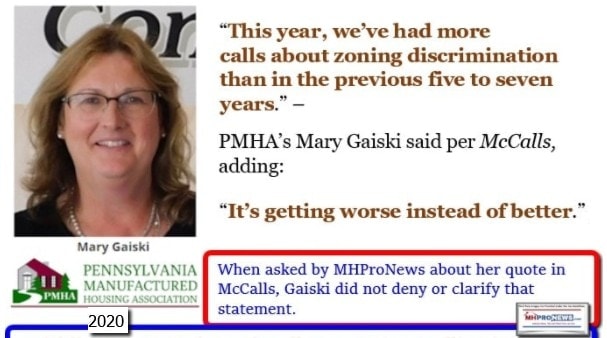
MHI told MHN that they are “partnering” with HUD. Really? If so, then why did prior HUD Secretary Marcia Fudge specifically decline enforcing the enhanced preemption provision of the MHIA? That was captured on CSPAN. The video and transcript are provided below, so it is difficult to realistically dispute.
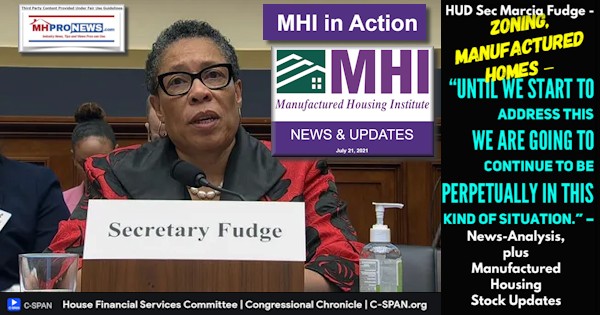
As MHProNews has repeatedly documented, MHProNews mentioned to MHN’s interview author Laura Calugar (see above), and our publications have repeatedly documented. Not only has MHProNews, MHARR, and MHLivingNews dotted the i’s and crossed the t’s, but outside researchers looking in have too. Samuel “Sam” Strommen for Knudson Law alleged in a 17-page research report that MHI is engaged in an antitrust violating scheme. See those and related in the links below that quote illustration.
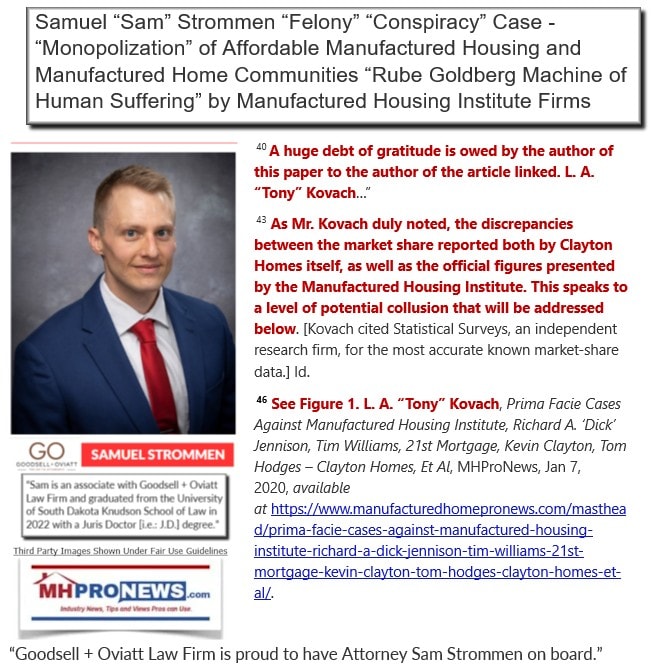
9) In the interview with MHN, Gooch fails to mention that multiple MHI member firms and/or members of MHI linked state association stand credibly accused of behavior that violates MHI’s code of ethical conduct. That failure to be candid and clear is on Gooch and MHI. But there is arguably a responsibility, that Yardi’s Popita and the SPJ Code of Ethical Conduct both point to, that MHN ought to exercise. Right now, the interview with Gooch is more like posturing, paltering, and propaganda than it is a genuine interview that presents news which supposedly meets MHN standards.
10) Regarding mainstream media, The Patch recently published the item shown below about MHI member Frank Rolfe that said in part that he blames MHI and that there is no serious desire to address the affordable housing crisis.
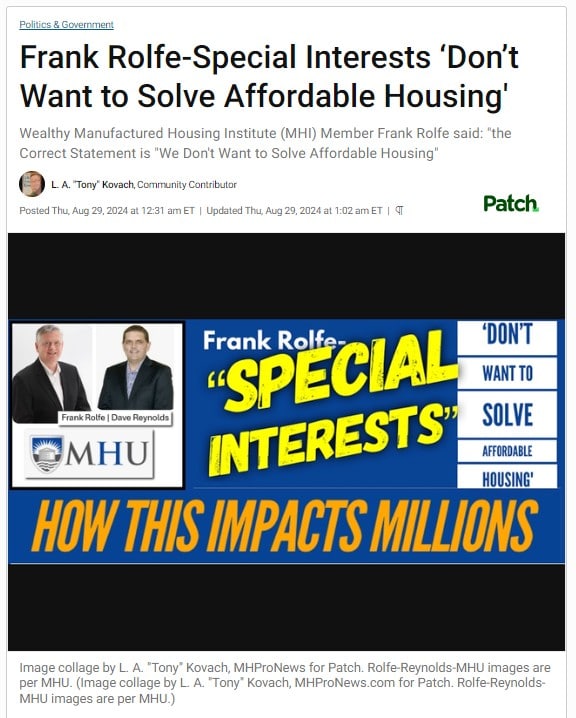
MHProNews Notice: that this writer for MHProNews plans to do at least one more follow up on this topic via the Patch. That notice will give MHI, who reportedly has multiple insiders who follow our publishing and/or MHN to respond as they may wish.
11) The takeaways and concerns that this “interview” raise are many. But some of them, in no particular order of importance, are as follows.
a) There is apparent evidence that Gooch is using MHN. Perhaps they are okay with being so used, perhaps not. But at this point what is clear is that information that contradicts many of Gooch’s claims are readily available.
b) A simple Google search by Laura Calugar and/or her editor(s) on an iPhone would have revealed the following about Gooch. There are apparently favorable items about Gooch, that MHI has apparently made efforts to get promoted on Google, Safari and other browsers search tools. But there are also several concerning articles that if Calugar has simply looked at for a few minutes may have caused them not to interview Gooch at all. Meaning, one of the most basic items from the vantagepoint of the SPJ code of ethical conduct were either not exercised or the results were ignored. About half of the items that follow (orange boxes added by MHProNews for emphasis) illustrate possible items that should have attracted a journalist’s and/or an editor’s interest.

c) The Timetoast item linked above includes this picture. This should have been flagged by MHI’s leaders when they considered Gooch for possible work at MHI. But it should also have been considered by MHN about what sort of person they were interviewing.
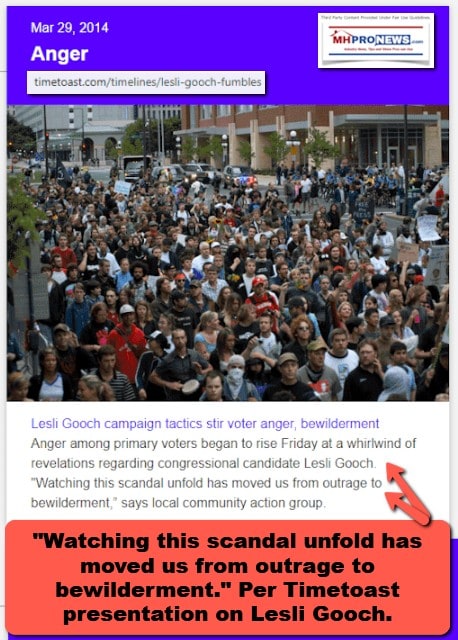
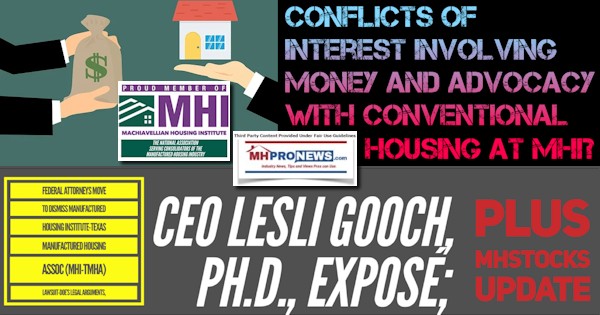
d)

e) Someone doesn’t have to do too much searching of manufactured home industry news feeds to discover the there are dozens and dozens of mainstream news articles about concerns raised about living in manufactured home communities (MHCs). Those concerns are totally ignored by MHN. Why? It is understandable that Gooch would not want to discuss that, but then that makes MHN a possible vehicle for Gooch/MHI misinformation. For example. Several MHI members have been sued in national class action antitrust suits.
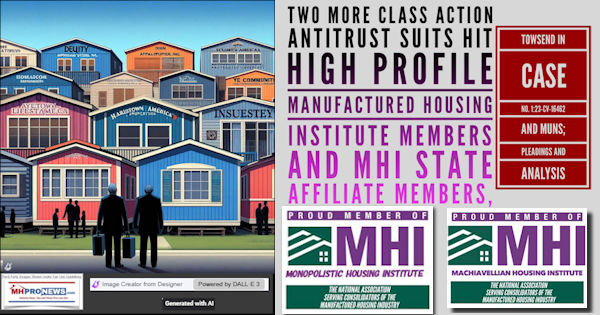
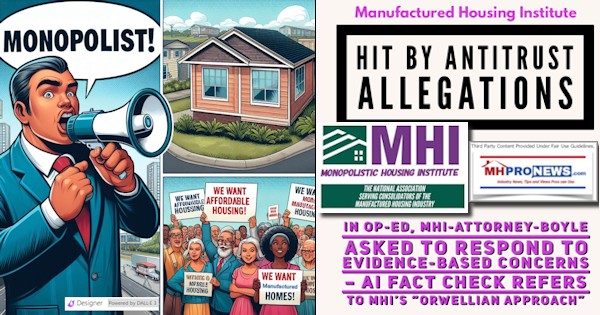
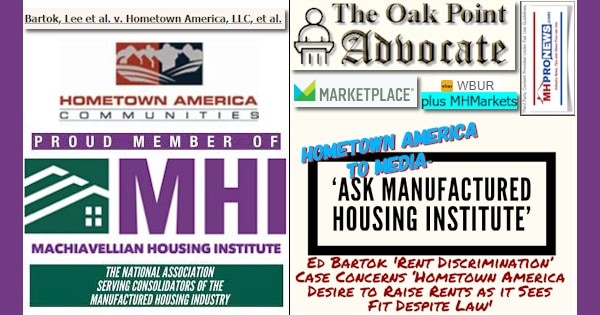
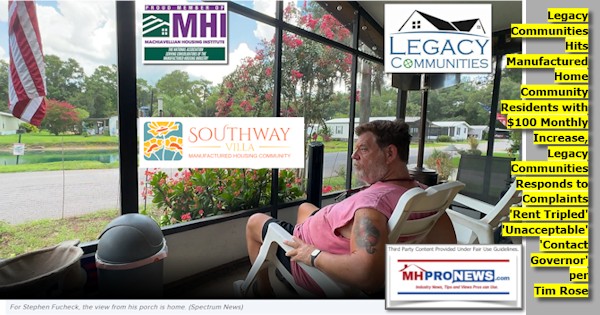
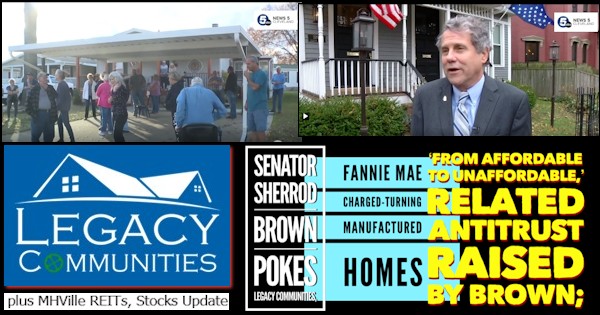
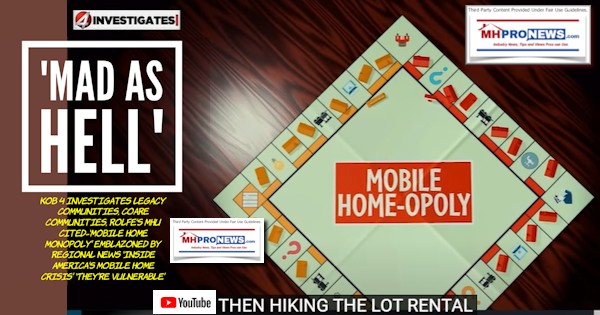
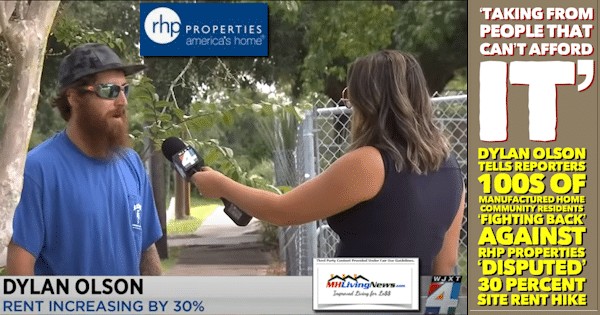
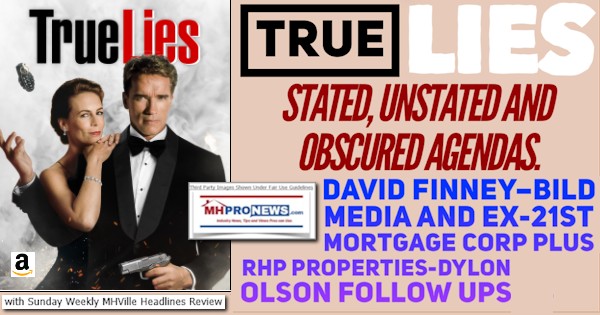
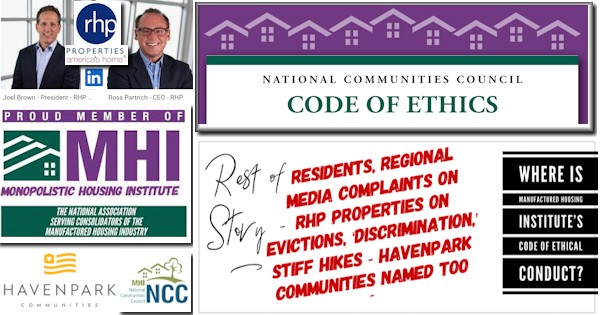
f) The affordable housing crisis could be solved by simply enforcing existing laws. Ironically, Gooch alluded to part of that, but failed to lay out in more details the facts on the Housing and Economic Recovery Act (HERA) and MHI’s role – per MHARR, Doug Ryan, and others – in insuring that DTS and enhanced preemption have been allowed to languish.
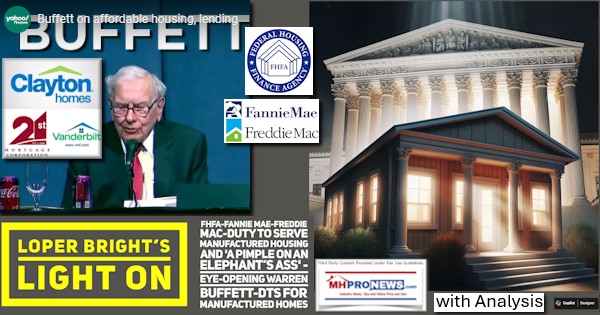
g) Congress held hearings on the lack of enforcement of the MHIA. Then vice chair, but now chairman Bill Boor spoke to Congress in July 2023 about getting enhanced preemption enforced. How could Gooch fail to mention these facts? MHI participated in all of those events and more like them. How could MHN fail to check with MHARR, the other national association, which features that enhanced preemption topic numerous times on their website? But if the goal of MHN was to provide fluff for MHI, they accomplished that purpose.
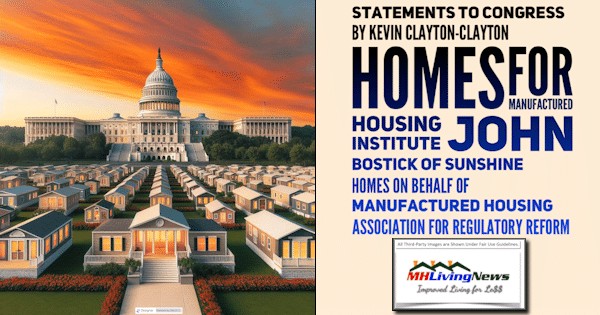
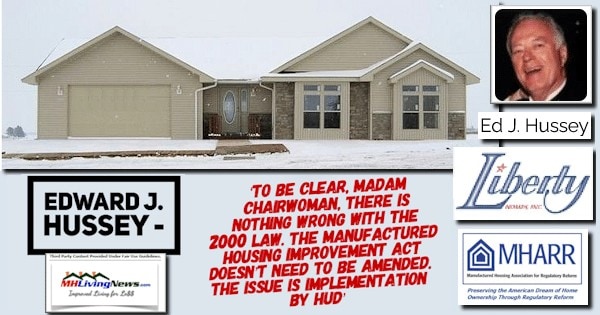
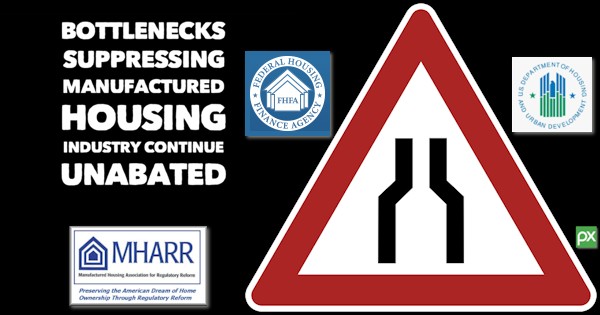

h) MHN has now stumbled upon genuine news for mainstream media. Others in media have shed a light on this via op-eds, but will they do a groundbreaking report? The question now is, will they look the other way?
Solutions must be inherently affordable. Decades of subsidies for costly housing have never solved the affordability crisis and never will. | By L. A. “Tony” Kovach https://t.co/nAPLMIgotU
— Deseret News (@Deseret) April 30, 2024
Or will MHN put a notice that a revision is planned for their interview with Gooch, check with sources like MHARR, others, dig into the evidence from the reports linked, and then produce a report that also seeks the views of disgruntled residents, troubled professionals, and gives MHI and their attorneys a chance to respond to the evidence like is outlined in this report?
12) As noted, MHProNews plans a follow up via the Patch and/or a press release with this evidence and added information. Stay tuned for the follow up.
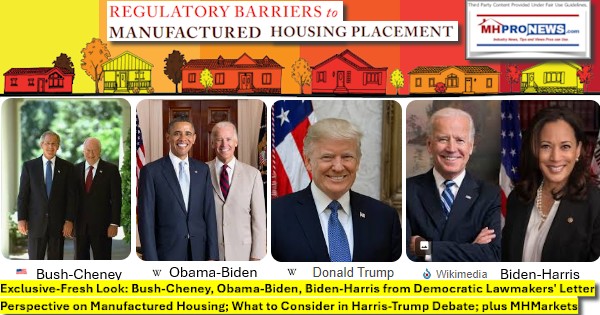
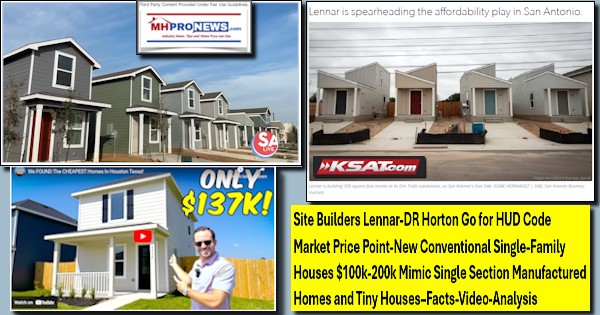
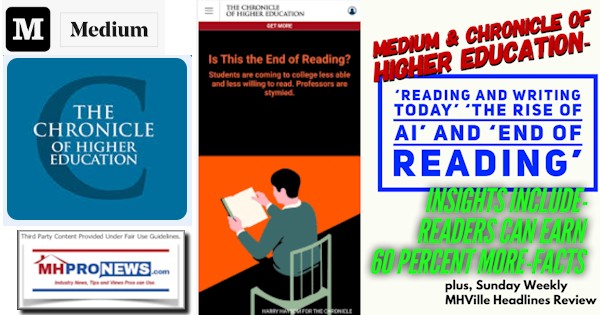
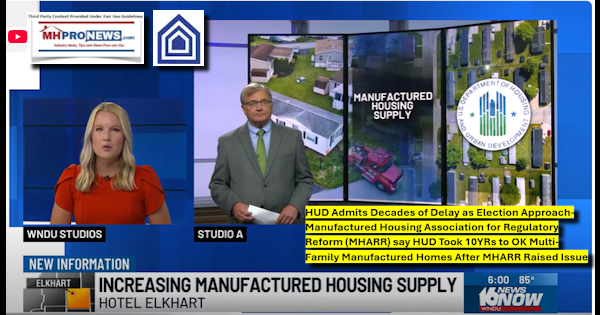

[cp_popup display=”inline” style_id=”139941″ step_id = “1”][/cp_popup]
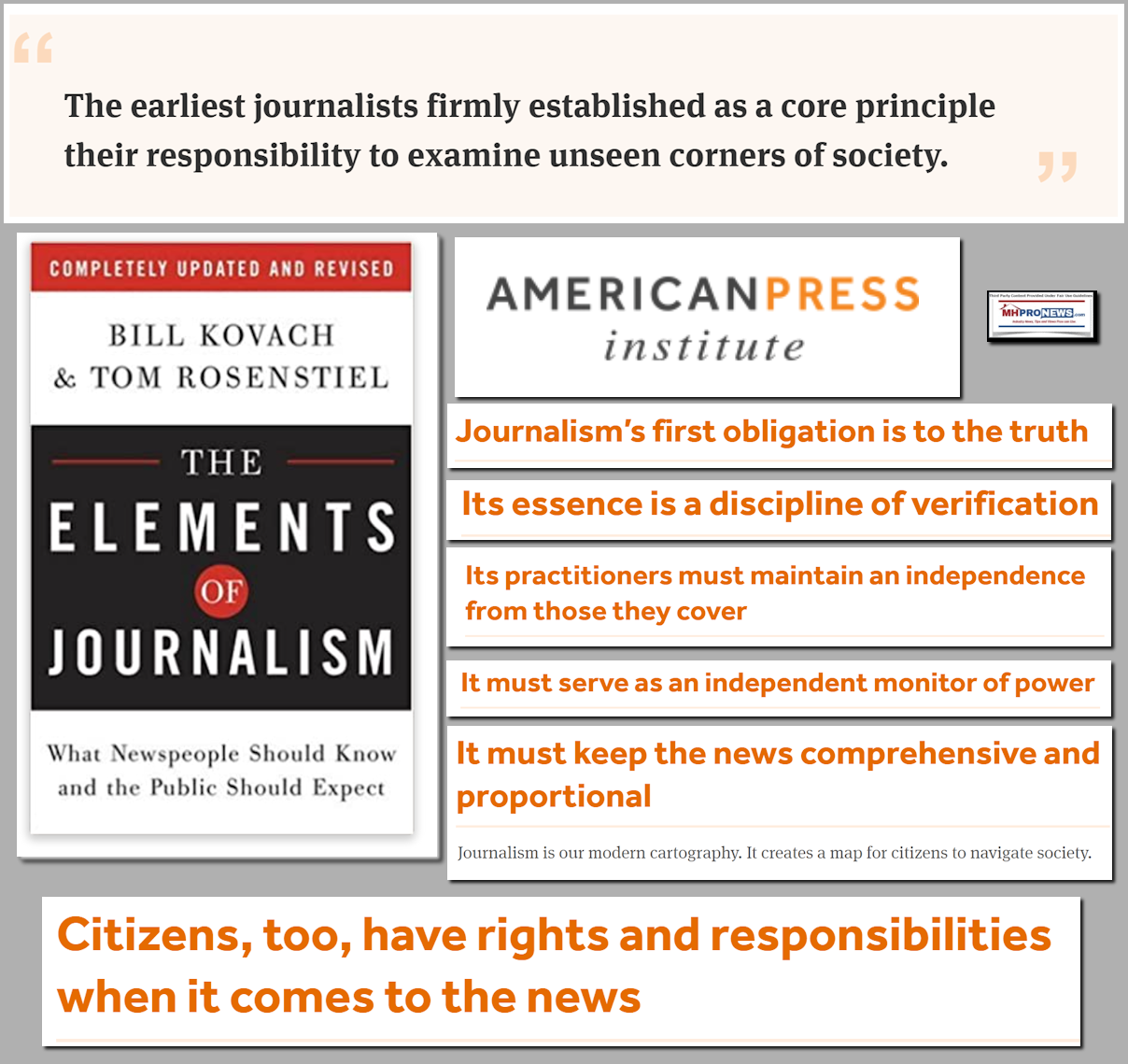
Stay tuned for more of what is ‘behind the curtains’ as well as what is obvious and in your face reporting that are not found anywhere else in MHVille. It is all here, which may explain why this is the runaway largest and most-read source for authentic manufactured home “News through the lens of manufactured homes and factory-built housing” © where “We Provide, You Decide.” © ## (Affordable housing, manufactured homes, reports, fact-checks, analysis, and commentary. Third-party images or content are provided under fair use guidelines for media.) (See Related Reports, further below. Text/image boxes often are hot-linked to other reports that can be access by clicking on them.)

By L.A. “Tony” Kovach – for MHProNews.com.
Tony earned a journalism scholarship and earned numerous awards in history and in manufactured housing.
For example, he earned the prestigious Lottinville Award in history from the University of Oklahoma, where he studied history and business management. He’s a managing member and co-founder of LifeStyle Factory Homes, LLC, the parent company to MHProNews, and MHLivingNews.com.
This article reflects the LLC’s and/or the writer’s position, and may or may not reflect the views of sponsors or supporters.
Connect on LinkedIn: http://www.linkedin.com/in/latonykova


